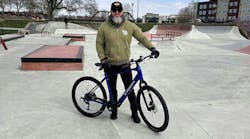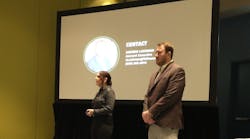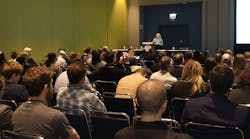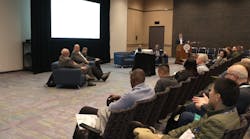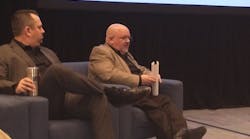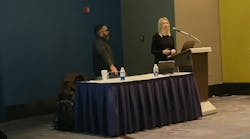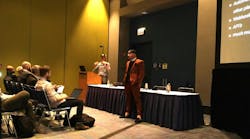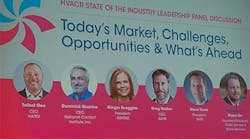Industry leaders discussed heat pumps, artificial intelligence (AI), refrigerants, and technician recruitment during a panel discussion Jan. 23 at the 2024 AHR Expo in Chicago: Ginger Scoggins, president of ASHRAE; Talbot Gee, CEO of HARDI; Steve Yurek, president of AHRI; Dominick Guarino, CEO, National Comfort Institute; Gregg Walker, CEO of ASHB; and moderator Bryan Orr, founder/president of HVAC School and Kalos Services.
Gee noted there was still hesitation in the market regarding heat pumps: "Contractors need to be the authority on the technology; they'll be heroes if they take that on."
Orr added that heat pumps require a different skill set, making heat pumps a "big lift" for some contractors.
Moving to AI, Guarino said that contractors "blindly rely" on building controls. Training is crucial in this area to ensure that building controls with AI use good information; verification is critical to this process.
"Engineers design complicated systems with building controls," noted Scoggins. "Commissioning agents should be documenting these systems so contractors don't scrap the design and install what they want."
Talbot told attendees that the date for the U.S. transition to mildly flammable A2L refrigerants was extended for a year. Yurek noted that the need to reclaim today's refrigerant was needed even more to ensure customers are not left hanging at the end of the year when R410a is no longer to be used.
"Refrigerant reclamation is important to serve your customers and the environment; there is value in that refrigerant."
On the topic of workforce development, Guarino noted the industry needs more nontraditional training and "fast-track" programs to get more HVAC technicians into the industry to help customers. He also noted that many HVAC schools have old equipment; they should have new equipment, donated by manufacturers, so students are learning with the latest technology before starting their careers.
